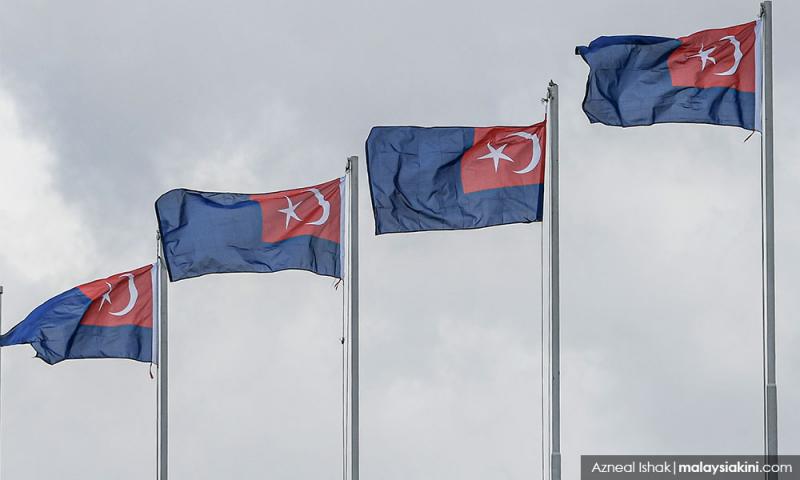
There is historical basis to TMJ's 'unconstitutional' claims: PKR MP
Published: Jun 17, 2024 7:19 PM
Pasir Gudang MP Hassan Abdul Karim has expressed sympathy towards the Johor regent Tunku Ismail Sultan Ibrahim’s views on Johor’s status as an “equal partner” to the Malaysian federation.
Amid criticism that the regent’s views are unconstitutional, Hassan said His Highness’ opinions should be taken from a broader historical perspective and be constrained by interpretations of the Federal Constitution.
He claimed Johor was never directly occupied by the Portuguese, Dutch, British, or Japanese, thus having the longest history in Malaysia of being a sovereign territory.
This makes a second-class position in the Malaysian Federation unacceptable to Johor.
“So, when the Johor crown prince demands to be treated as an equal partner by the Malaysian Federation like Sabah and Sarawak, such a demand is not nonsense,” he said in a statement today.
Previously, Tunku Ismail called for greater separation of powers between Johor and the federation, lamenting that the state’s interests are only taken care of during an election season.
He asserted Johor is not a “beggar state” that needs to beg for the state’s needs and development and called for some 20 to 30 percent of the state’s tax revenue to be returned.
He also called on Johor politicians to form the “Gabungan Bangsa Johor”, which is akin to Gabungan Parti Sarawak.
Historical context
Constitutional experts have said that Tunku Ismail’s views on Johor’s place in the federation do not follow the structure laid out in the Federal Constitution, though political scientist Wong Chin Huat said it should serve as a wake-up call for greater decentralisation of federal powers.
Hassan said modern Johor is a continuation of the old Johor that was established following the fall of the Malacca Sultanate in 1511.

Pasir Gudang MP Hassan Abdul Karim
It had built the Johor-Riau empire and continued to fight the Portuguese and the Dutch. The state’s constitution of 1895 is still in force today after 129 years.
While Malacca, Penang, and Singapore were directedly occupied by the British to form Straits Settlements; and Pahang, Selangor, Perak, and Negeri Sembilan were forced to accept British “advisers” to become the Federated Malay States; Johor did not share the same fate.
Instead, it voluntarily became a part of the Unfederated Malay States together with Kelantan, Terengganu and Kedah.
“Johor basically accepted the patronage of the British but remained an independent territory and its ruler has sovereignty that is recognised by the British colonial government and its judicial system,” he added.
In contrast, Hassan said Sarawak was never an independent state, having been previously a part of the Brunei Sultanate, before being ruled by James Brooks and subsequently under British colonial rule.
Likewise, Sabah had been territories of the Sulu and Brunei Sultanates and was never an independent state, he said.
It was only after the Federation of Malaya in September 1963 that the 11 Peninsular Malaysia states were released from the Malaya Federation Agreement of 1957 and became an equal partner to Sabah and Sarawak.
It had built the Johor-Riau empire and continued to fight the Portuguese and the Dutch. The state’s constitution of 1895 is still in force today after 129 years.
While Malacca, Penang, and Singapore were directedly occupied by the British to form Straits Settlements; and Pahang, Selangor, Perak, and Negeri Sembilan were forced to accept British “advisers” to become the Federated Malay States; Johor did not share the same fate.
Instead, it voluntarily became a part of the Unfederated Malay States together with Kelantan, Terengganu and Kedah.
“Johor basically accepted the patronage of the British but remained an independent territory and its ruler has sovereignty that is recognised by the British colonial government and its judicial system,” he added.
In contrast, Hassan said Sarawak was never an independent state, having been previously a part of the Brunei Sultanate, before being ruled by James Brooks and subsequently under British colonial rule.
Likewise, Sabah had been territories of the Sulu and Brunei Sultanates and was never an independent state, he said.
It was only after the Federation of Malaya in September 1963 that the 11 Peninsular Malaysia states were released from the Malaya Federation Agreement of 1957 and became an equal partner to Sabah and Sarawak.
Johore accepted a treaty of protection with the United Kingdom in 1885, and eventually succumbed to British pressure to accept a resident "Advisor" in 1914.
ReplyDeleteTo all intents and purposes , Johor was subsequently a British "protectorate" or Colony in all but name after that until 1957.
People who lived in Johor at the time knew very well, except for the Japanese Occupation period 1942 -1945, the small cadre of British Colonial officers called the shots, except on matters of Muslim Religion and Malay Customs .